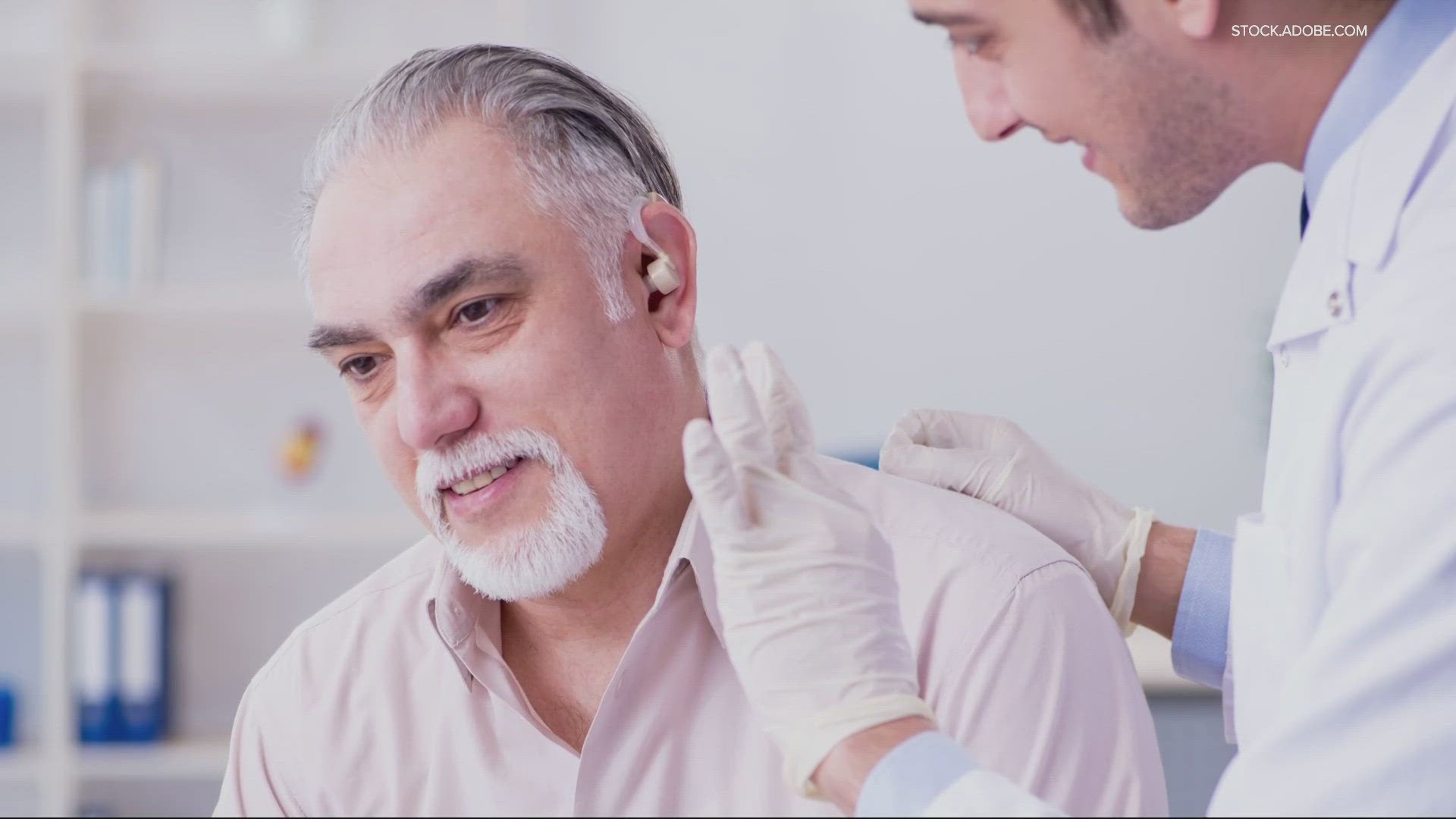PORTLAND, Ore. — According to researchers from Oregon Health & Science University and the VA Portland Health Care System, veterans with hearing loss are more likely to develop Parkinson's disease.
"It was a really exciting finding for sure," said lead author Lee Neilson. "This really was a patient driven sort of question. I had noticed that a lot of people with Parkinson's had difficulty with hearing."
JAMA Neurology published their findings in late October. Some smaller studies have found a connection between Parkinson's and hearing loss in the past Neilson said, including one conducted in the United Kingdom.
Neilson said he was inspired to try and replicate that finding on a bigger scale and look for a possible intervention.
The team spent two years analyzing medical records spanning two decades from millions of U.S. veterans. Neilson said it's these records, stored by the VA, that made this kind of in-depth study possible. One caveat, he added, is that the population they studied skewed white and male.
"It has become standard that every veteran at discharge gets a hearing test," Neilson explained. "So, that was a really powerful part of this study."
Epidemiologist and audiologist Kelly Reavis said the data used for their study can be found through a simple audiometry test.
"A hearing test is incredibly easy and it doesn’t take long at all," Reavis said. "Come in, put some headphones on and have you raise your hand when you hear some beeps and a few other tests that are also noninvasive."
But Neilson and his team didn't stop there, they wanted to know if wearing a hearing aid would impact the possible development of Parkinson's.
"How does a hearing aid affect us? And it brings the risk (of Parkinson's disease) back down big time, which is a shock and also very exciting," said pathologist Gregory Scott.
Scott, Neilson and Reavis hope their findings will encourage people to get a hearing test, and a hearing aid if needed.
"I think, based on this study, getting evaluated for a hearing aid is going to be something actionable for a disease where there's otherwise no action," Neilson said.
Right now, there is no cure for Parkinson's. Scott believes further research into risk factors like hearing loss could help doctors identify the disease earlier.
"Let's catch it early and try to prevent it from getting worse in your 40s and 50s," he said.
"Knowing that we are uncovering that perhaps if we intervene early (we) can prevent or delay the onset of some of these neurodegenerative diseases is really impactful, and it's incredibly rewarding at the end of the day," Reavis added.

